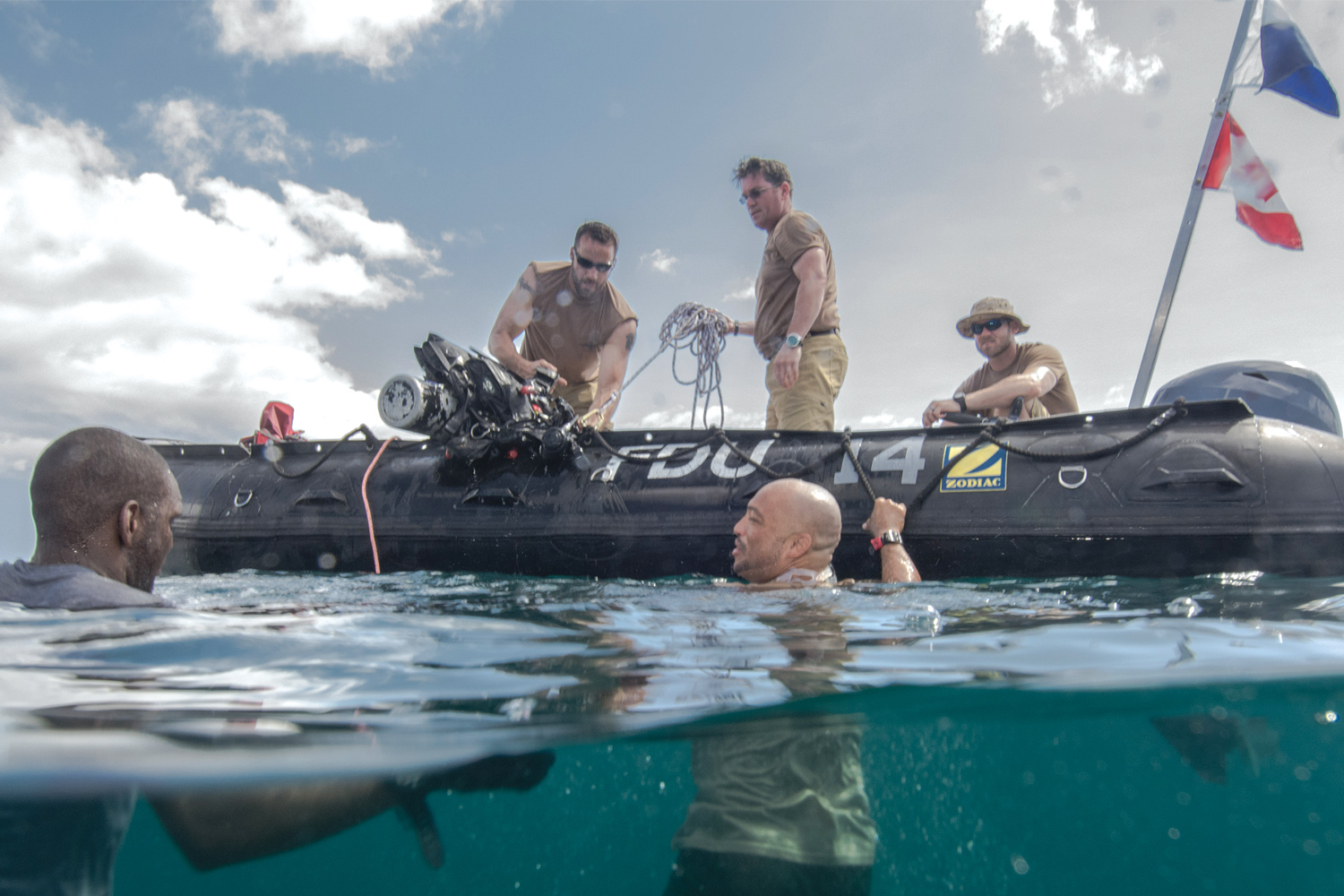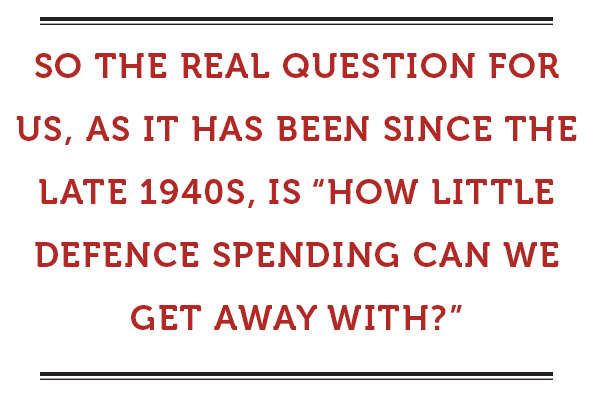
Members of the Fleet Diving Unit haul in equipment during an exercise off St. Kitts and Nevis in the Caribbean. [Sgt. Yannick Bédard, Canadian Forces Combat Camera]
If it does nothing else, let’s hope that the current defence review gets real about what the basic missions of the Canadian Armed Forces should be.
It is oft repeated that the CAF’s first mission is the defence of Canada and that its second mission is to help defend North America in conjunction with the United States. But the CAF alone is completely incapable of defending Canada and will, if ever necessary, need American military power to do so. It is also true that a “formal” attack on Canada or the United States is highly unlikely short of a major global war and that such a war is itself highly unlikely.
Thus Canada’s real role in the defence of itself and consequently of our part of North America is primarily reconnaissance. Canada must have or acquire the very best technologically advanced interceptor aircraft, surface ships and undersea capability to always know who is approaching our territorial air, sea and undersea territory and “usher them away.” At the same time, Canada must collect as much information from unknown vehicles approaching our waters or airspace, such as radar emissions or underwater sound displays for intelligence purposes. And, of course, Canada must share the results of its reconnaissance with our ally, the United States, which is critical for our own defence.
In the very unlikely event that an approach to Canada’s territory is done with hostile intent to “attack” Canada or the United States, Canada must have as much capability as possible to hold off the attack until the far more substantial forces of the United States can be brought to our aid. That is because we are too cheap to spend even a large portion of what we must to defend ourselves. We are the epitome of “free riders” by choice.
Canadians often act as if Canada is a lone player in international affairs. But for reasons of trade alone (and our large dependence on a rules-based international order), we must be ready to act with allies such as NATO or “informal allies” such as Japan, Australia and the Gulf Cooperation Council to maintain order and security in the global commons. That means that given Canada’s limited military ability, we must decide three issues: first, which parts of the globe are most important to Canadian interests; second, which parts of the defence spectrum should Canada endeavour to cover; third, to what degree should Canada engage militarily in areas where Canada has few, if any, national interests. Perhaps the question of what Canada’s national interests are ought to be undertaken as soon as possible in a global affairs policy review.
Much attention has been given to the question if Canada has the will or the ability to meet NATO’s new target of two per cent of GDP on defence spending which the previous government committed Canada to and which the new government has not disavowed. Certainly for reasons of inadequate infrastructure alone, not to mention ongoing procurement problems that oblige governments to keep pushing back completion dates, it would be impossible to meet that standard any time soon. The military can absorb only limited amounts of additional funds as it is currently organized. But the fact is that the only nation that Canada must attempt to satisfy on matters of defence spending is the United States. So the real question for us, as it has been since the late 1940s, is “how little defence spending can we get away with?”
If Canada is prepared to get active and stay active in a high profile manner in some area (geographical or in cyberspace) that is important to the United States, much of the pressure from the U.S. to meet the two per cent target will be mitigated as it was when Canada was engaged in Kandahar.
A larger and more sustained effort in the Caribbean might do the trick as a first Canadian priority that would also serve Canadian interests due to Canada’s once strong financial, mining and other commercial interests there and the growing number of Canadians with strong family ties to the Caribbean. This question is, of course, a matter of foreign policy priorities but the basic point is that the U.S. did not press Canada to increase defence spending when our men and women were being killed in Afghanistan.
Afghanistan is over for us, but we need to find some other compelling mission or missions that will show to the United States and to ourselves our importance is not to be measured solely in how much we spend, but also by what we do. It is very doubtful that a mission to Africa will fulfill either of those needs.
Advertisement





















